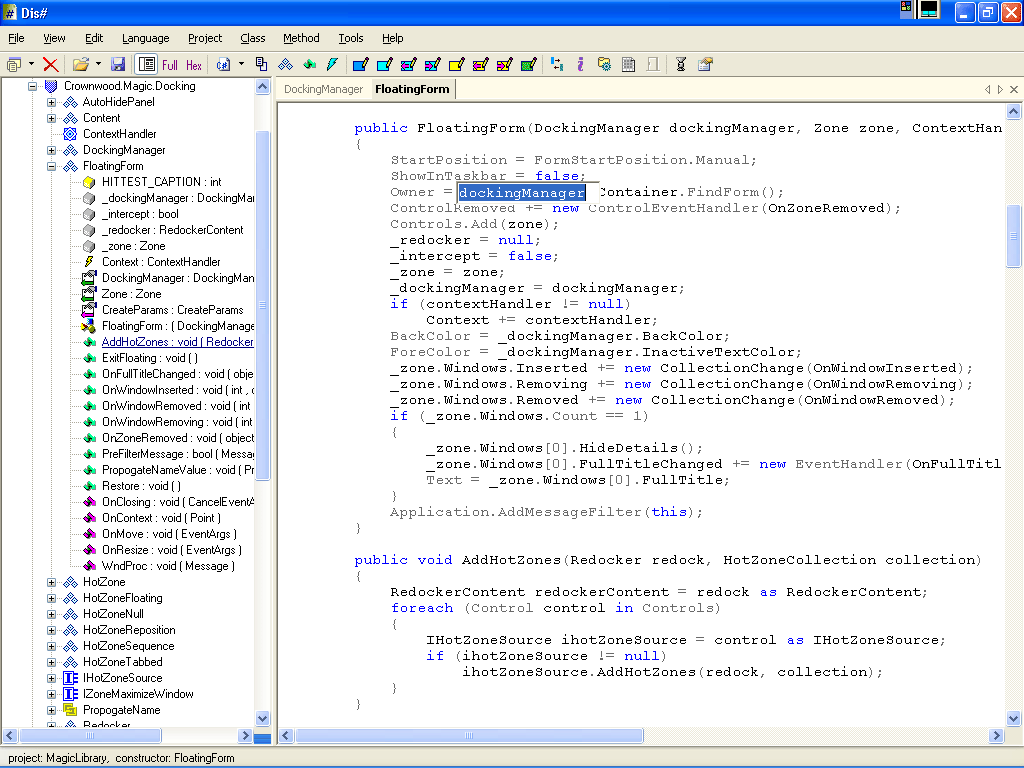
Website @ netdecompiler.com
Informatie (ENG)
- Inplace Editor
The typical problem with decompilation is the absence of full source information in the executable file. For instance, .NET assembly does not contains names of local variables. Program can automatically assign local names in accordance with their types (what Dis# is really do), but it still too differentiates with the original source.Dis# makes next logical step in this direction. You can edit the names and keep the changes in a project file.
- Dis# project fileDis# have it’s own metadata structure, which expands PE metadata structure with all necessary for decompilation information, such as local variable names. You can save Dis# metadata in the project file (extension .dis) and keep all changes.
- Decompilation SpeedCustom metadata provides outstanding decompilation speed, which 25-700 times faster then have other .NET decompilers. Dis# decompiles more then 2000 methods per second.
- Multiple Languages decompilationSupport for C#, Visual Basic.NET, Delphi.NET and Chrome.
- Well formed codeDis# generates code, which is look like the human edited. Dis# .net decompiler have many options to adjust code view for your preferences.
- OptimizationDis# optimize code.
- .NET 2.0 supportDis# support .NET 2.0 assembly format, generics etc.
- Raw CodeIn some cases you have to view raw code (before high level decompilation algorithms processing)




